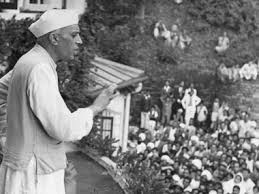In 1927, the minister for India, Lord Berken, challenged the Indians after the failure of the Simon Commission, saying: if they have any political capacity and authority, they ought to establish a unanimous constitution and submit it to the Indians and we will do it.

The first and second conferences of both Parties in Delhi took place on 12 February 1928 and 19 May 1928 respectively, to respond to the request of Lord Birkenhead.
At the conference, there was created a seven-member legislative commission. It only has the names of Mr. Ali Imam and Mr. Nehru. The committee also included his uncle, Jawahar Lal Nehru.
Check out also: Non-Aligned Movement
The Report was Included with the following Suggestions:
- There should be an end to the right of separate Muslim electorates. It is a religious cause.
- The right to retain seats will be terminated in compliance with population proportions. Seat survival requires tolerance of sectarianism that is as poor as independent voters. This argument indicated a denial of the desire to represent the Punjab and Bengal population by proportion. In these provinces, the Muslims majority will comfortably defend its rights.
- In Muslim minority provinces, Muslims should be measured by their population and the practice of seating more than the population should be prevented.
- In the Central Assembly, Muslims should not be allocated one-sixth, but they should be reserved for 25 seats in terms of their population.
- There should be another two-fold separation of the provinces, firstly that language should be normal, secondly that inhabitants in this country would choose to be divided. The province of Sind, therefore, needs to be distinguished from Bombay, as it encompasses all of these words.
- This initiative did not include constitutional amendments in N.W.F.P Baluchistan. It was justified that it was not erroneously mentioned.
- In India, a central form of government must be formed whereby, apart from the authorities that have not been discussed, the center will have more power than the provinces to improve it.
Check out also: Allahabad Address (1930)
The suggestion from Nehru against the Muslims brought down the Lucknow and Delhi Treaty agreements The Nehru Report’s argument was focused on Muslim animosity and contravened Muslims ‘fundamental values and freedoms.
The Hindus had completely misunderstood the provisions of the Lucknow Agreement according to these recommendations. The Nehru Report’s recommendations make two points clear.
The Hindus are extreme enemies of Muslims first and seek to keep Muslims from advancing. Third, the Hindus break pledge and try the chance that they are not a deserving nation of trust. They are not.
Of this cause, Quaid-e-Azam addressed the Nehru report with its 14 points of defense of Muslims on 25 March 1929.

